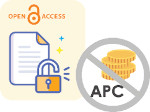Brief approach to lifestyle changes in primary health care
DOI:
https://doi.org/10.61661/congresso.cbmev.6.2023.14Keywords:
behavioral psychology, change, lifestyleAbstract
Introduction: The study presents an intervention based on Behavioral Psychology to achieve changes in lifestyle, within the scope of Primary Care. Health care presupposes the ethical responsibility of creating interventions that contribute to changes in lifestyle, effective in generating value for patients and health systems. Objective: To present a brief approach strategy to support the adoption of healthy lifestyles. Methodology: A descriptive, observational, prospective and longitudinal study was carried out on an intervention developed from October 2022 to August 2023. The approach has three pre-formatted sessions, lasting approximately 45 minutes, conducted with flexibility and patient-centeredness. Satisfaction was monitored throughout the process and after one and three months. Results: 110 patients were approached, men and women, aged between 21 and 76 years, with or without health problems. Considering readiness for change, 37 (33.6%) continued with the project. Of the 37 patients, 7 (19%) did not complete the process. The 30 (81%) who completed the process achieved and maintained the desired change 30 days after the intervention. After 90 days, 25 patients (83%) maintained the change. 48% of patients independently incorporated new healthy behaviors, in addition to those idealized. Patients mentioned the value of the experience for self-care. The score obtained through the Net Promoter Score (NPS), after 90 days, was 9.79. Conclusions: The brief approach was able to generate changes in lifestyle, configuring itself as an innovative and customizable strategy, with the potential to impart quality to care and influence the professional-patient relationship.
References
Malta, D. C. (2014). Doenças crônicas não transmissíveis, um grande desafio da sociedade contemporânea. Ciência & Saúde Coletiva, 19, 4-4. DOI: https://doi.org/10.1590/1413-812320141911.07712014
Ribeiro, J. L. P. (1989). A intervenção psicológica na promoção da saúde.
Pais-Ribeiro, J. (2004). Avaliação das intenções comportamentais relacionadas com a promoção e proteção da saúde e com a prevenção das doenças. Análise Psicológica, 22(2), 387-397. DOI: https://doi.org/10.14417/ap.199
Van der Weiden, A., Benjamins, J., Gillebaart, M., Ybema, J. F., & De Ridder, D. (2020). How to form good habits? A longitudinal field study on the role of self-control in habit formation. Frontiers in Psychology, 11, 560. DOI: https://doi.org/10.3389/fpsyg.2020.00560
Frates, E. P., Xiao, R. C., Sannidhi, D., McBride, Y., McCargo, T., & Stern, T. A. (2017). A web-based lifestyle medicine curriculum: facilitating education about lifestyle medicine, behavioral change, and health care outcomes. Jmir medical education, 3(2), e7587. DOI: https://doi.org/10.2196/mededu.7587

Downloads
Published
How to Cite
Issue
Section
License
Copyright (c) 2023 Viviane Barroso, Camila Hallack Souza, Christiane Fernanda Garcia Souza, Filomena Magda Fernandes Foureaux, Heloísa Magalhães de Oliveira, Jussandra Araújo Jorge

This work is licensed under a Creative Commons Attribution 4.0 International License.
The VI Brazilian Congress of Lifestyle Medicine allows the author(s) to maintain their copyright without restrictions. Publications are licensed under the Creative Commons Attribution 4.0 International License - CC-BY


